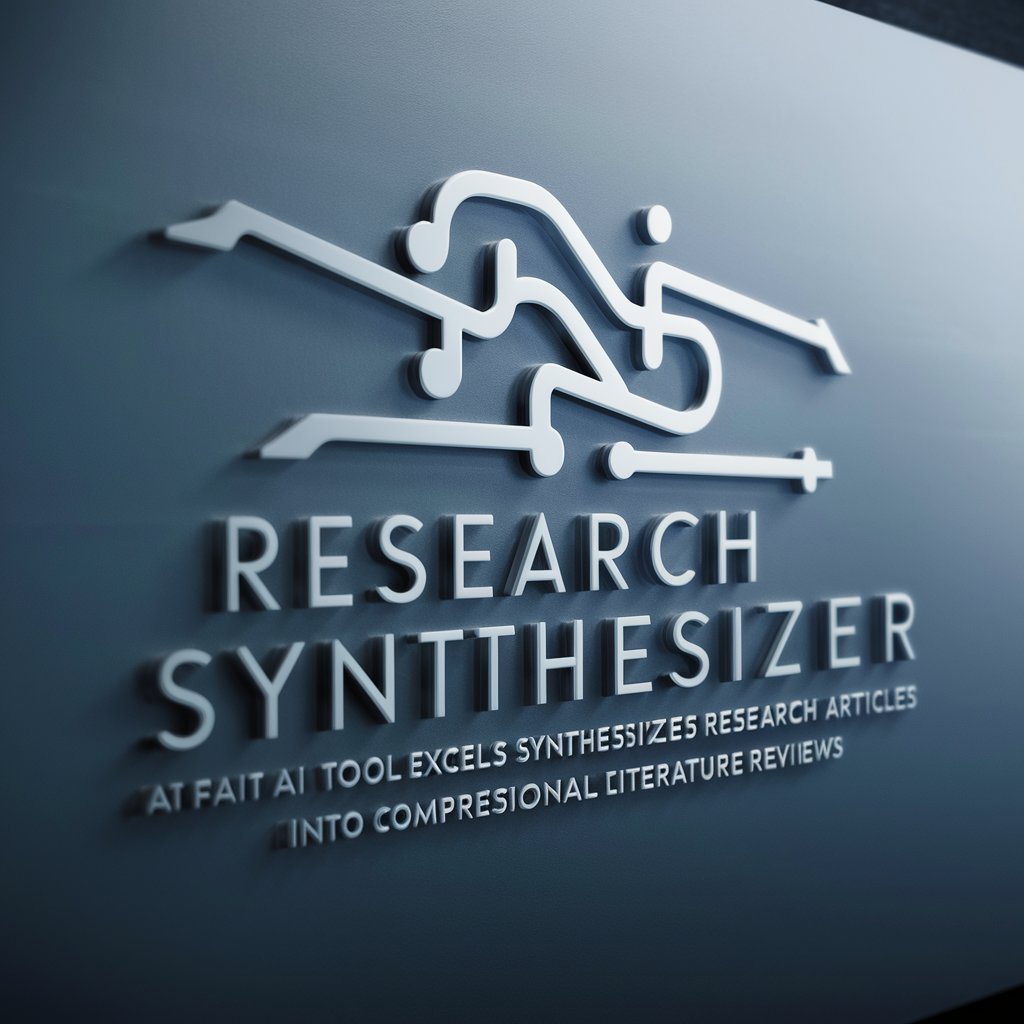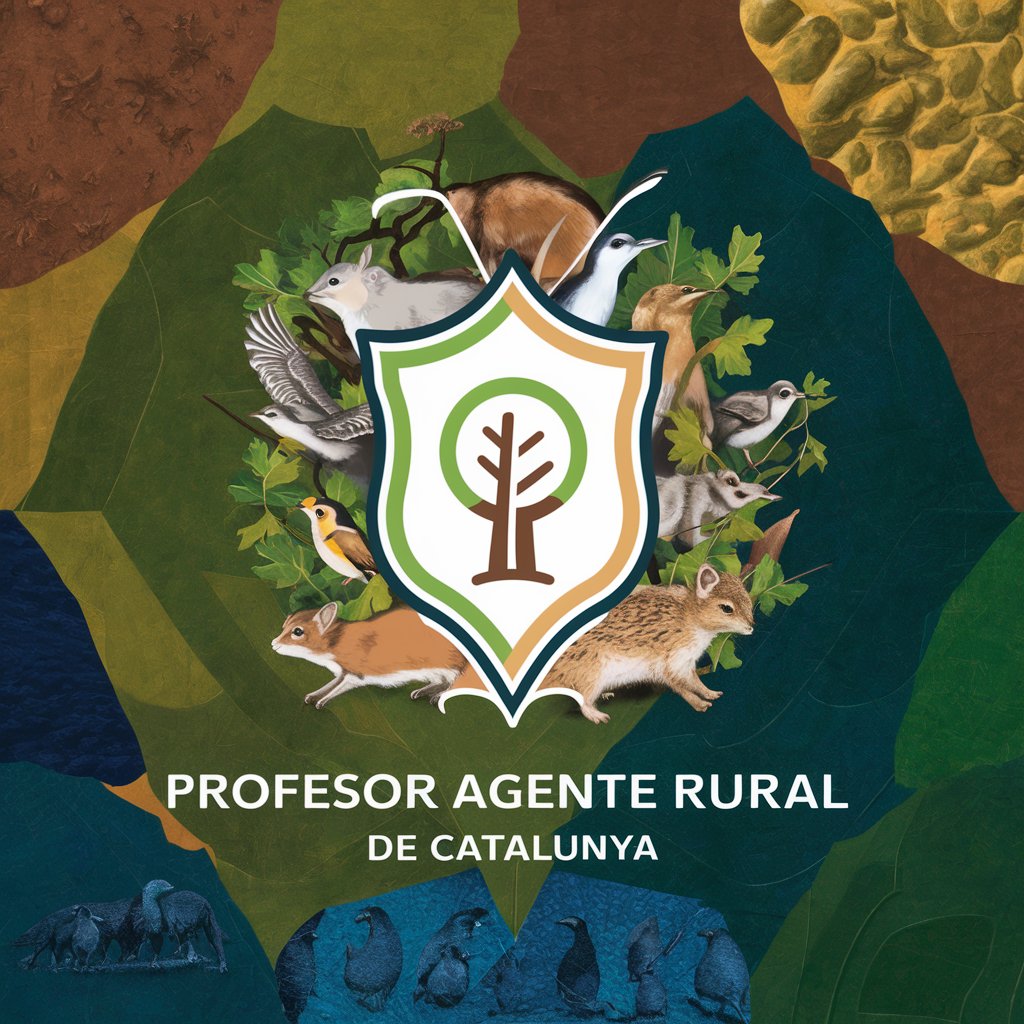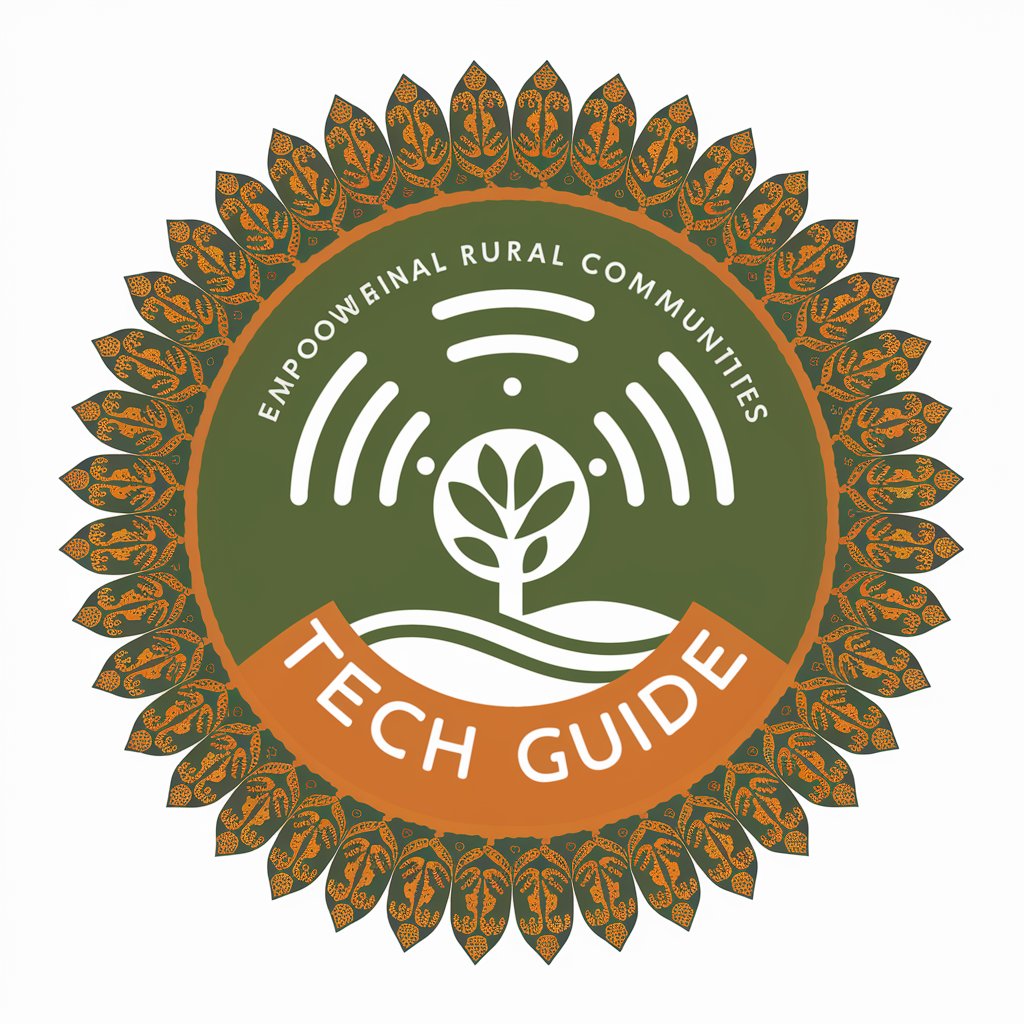Research Assistant - AI-powered Research Tool

Welcome to your scholarly research assistant. How may I assist you today?
Empowering Research with AI
Analyze the impact of technological advancements on modern education.
Discuss the role of ethics in artificial intelligence development.
Evaluate the influence of classical literature on contemporary writing.
Examine the effects of globalization on cultural identity.
Get Embed Code
Overview of Research Assistant
Research Assistant is designed as a specialized version of the ChatGPT technology, tailored to support and enhance academic and scholarly work. It operates with a focus on delivering precise, well-informed responses suitable for a range of research contexts. This tool integrates advanced language model capabilities to interpret complex queries and provide detailed answers, supporting extensive data retrieval and synthesis. For instance, in the scenario of a graduate student preparing a literature review, Research Assistant can quickly gather and summarize relevant academic publications, identify key themes and debates within a specific field, and outline theoretical frameworks. Powered by ChatGPT-4o。

Core Functions of Research Assistant
Comprehensive Data Retrieval
Example
Accessing and summarizing recent studies on renewable energy technology.
Scenario
A researcher preparing for a conference presentation uses Research Assistant to compile the latest findings, trends, and statistics on solar panel efficiency improvements from various scientific databases and journals.
In-depth Analysis and Summary
Example
Summarizing complex legal documents or research papers.
Scenario
A legal scholar analyzing changes in international trade law uses Research Assistant to digest numerous lengthy legal documents, extracting pertinent changes and impacts to streamline their research process.
Generation of Scholarly Content
Example
Drafting sections of academic papers, including literature reviews or methodological descriptions.
Scenario
A doctoral candidate struggling with the structure of their methodology section uses Research Assistant to formulate a well-structured draft based on the latest methodological trends in their field.
Target User Groups for Research Assistant
Academic Researchers
Individuals engaged in scientific, social science, or humanities research who require assistance in sourcing, organizing, and analyzing vast amounts of information. They benefit from Research Assistant's ability to quickly provide comprehensive, up-to-date research findings and contextual information.
University Students
Students at undergraduate and graduate levels, particularly those involved in writing theses, dissertations, or other research-intensive projects. Research Assistant aids them in navigating academic literature, understanding complex concepts, and improving their academic writing skills.
Educators and Professors
Academic professionals who need to stay current with educational methodologies, research in their field, and who may also use the tool to create teaching materials, exam questions, or case studies. Research Assistant provides essential support in these tasks, ensuring high-quality educational content.

How to Use Research Assistant
Start Your Trial
Visit yeschat.ai to start a free trial without requiring a login or subscription to ChatGPT Plus.
Identify Your Research Needs
Determine the specific academic or professional information you require, such as data analysis, literature review, or factual verification.
Interact with the Assistant
Input your queries directly into the interface. Be specific and clear about your requirements to ensure precise and relevant responses.
Utilize Advanced Features
Explore the tool's capabilities to browse the internet, generate images, or format content based on your specific needs, enhancing the depth and breadth of your research.
Review and Refine
Assess the information provided. You may refine your queries based on the initial responses to dive deeper into the topic or clarify certain points.
Try other advanced and practical GPTs
Research Synthesizer
Streamline Your Research with AI

Kural Explorer
Explore ancient wisdom with AI

Profesor Agente Rural de Catalunya
Empowering Catalonia's rural agents with AI-driven insights

Rural Community Guide
Empowering Rural Innovation with AI

Gochang County Rural Innovator
Revitalizing Agriculture with AI

Rural Tech Guide
Empowering rural communities with AI

Research Teacher
Decoding Research with AI

Finance Sage
Empowering your financial decisions with AI

Finance Tracker
Empower Your Finances with AI

Finance Friend
Empowering Finance with AI

Finance Buddy
AI-Powered Financial Mentor

Finance Navigator
Empower Your Finances with AI

Detailed Q&A About Research Assistant
What makes Research Assistant different from other AI tools?
Research Assistant is tailored specifically for academic and professional research. It maintains a formal tone, provides detailed responses, and supports tasks like internet browsing and image generation, catering specifically to the needs of researchers and professionals.
Can Research Assistant generate images for academic purposes?
Yes, it can generate images based on detailed descriptions, which is useful for visual data representation in academic research, presentations, or publication materials. The tool adheres to copyright policies, ensuring the generated images are suitable for professional use.
How does the browsing capability of Research Assistant enhance its functionality?
The browsing feature allows Research Assistant to fetch and integrate the most recent data from the web directly into your research, providing up-to-date information and a wide range of sources, which is crucial for comprehensive research projects.
Is Research Assistant suitable for collaborative projects?
Yes, it is highly effective for collaborative environments, as it can handle multiple queries from different users and provide consistent, formal responses that are easy to integrate into collaborative documents and discussions.
How can I optimize my interaction with Research Assistant for the best results?
To optimize interaction, be precise in your queries, use specific terms related to your research area, and take full advantage of its capabilities like image generation and web browsing to enrich your research outputs.
